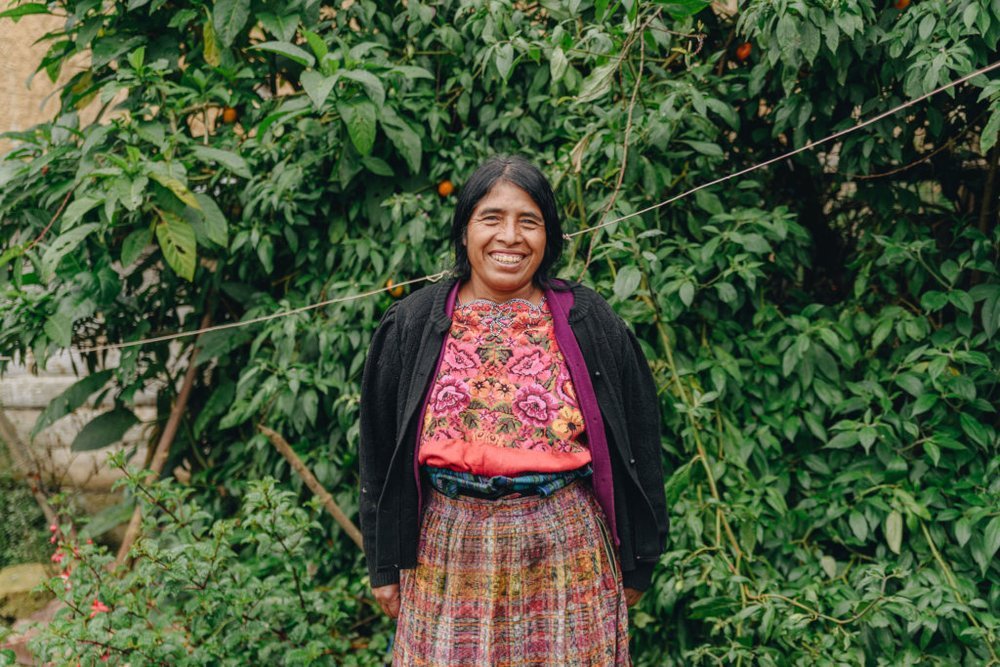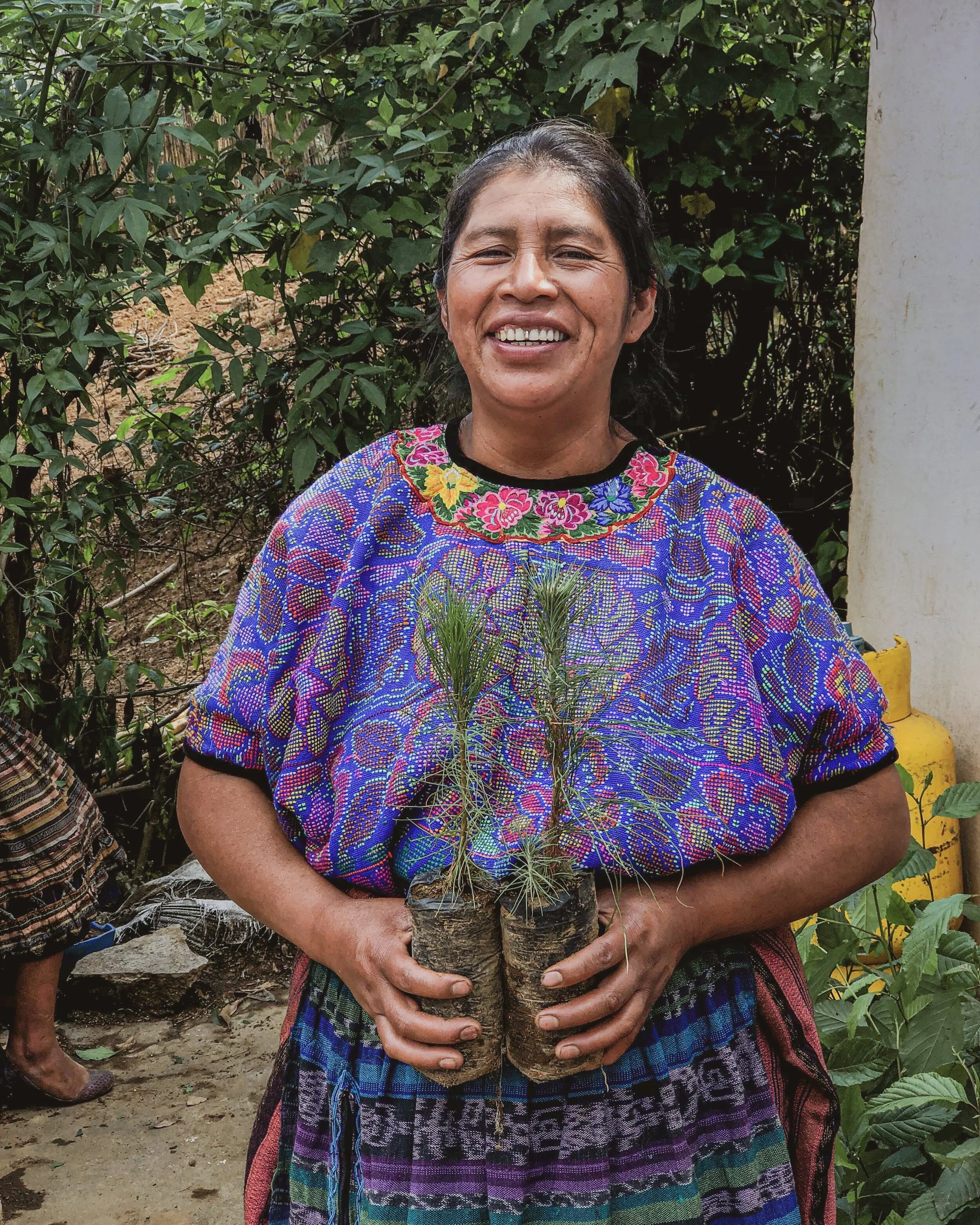Seeds of Resilience: Planting Trees & Growing Community
A history of state violence and oppression against the Indigenous peoples of Guatemala in order to prioritize the most fertile lands for large scale, export oriented, agriculture has contributed to a problem of deforestation in the country.
In order to escape civil wars that inflicted incredible violence on the Indigenous communities, many fled to the Highlands. As a result, the population density grows increasingly higher on limited, less fertile Highland terrain, and more land is needed to make space for agricultural production.
That space often comes at the expense of forested areas in the community as food production is of course a more immediate need. Furthermore, with droughts and changing weather patterns, climate change has emphasized the need for opportunities to improve water access and quality, as well as income opportunities aside from single-crop agriculture. Not only would planting trees help with these aims, but it would also provide a means to address one of the most devastating effects of climate change on these communities -- mudslides.
A project addressing deforestation has the potential to bring positive change in aspects from food security to biodiversity and beyond.
In order to bring sustainable, long-term solutions, the reforestation project will be coupled with efforts to bring more opportunities for income as well as improved agricultural production. Seeing as the expansion of land for food production is one of the main contributors to deforestation in the area, it is essential that this need is first addressed so that forests are not in conflict with the community’s well-being. Therefore, the reforestation project will include workshops on sustainable agricultural methods as well as the construction of water catchment systems in local communities to increase the productivity and resilience of their own agricultural practices.
See climate resilience in action.

Seeds of Resilience: An Indigenous Women-led Tree
Our project funds the installation of rainwater harvesting, storage, and drip irrigation systems, empowering Indigenous women entrepreneurs in Guatemala's Western Highlands. These infrastructures will boost their tree nursery enterprises' productivity, enabling them to meet the rising demand.
Notably, this support will ensure seedlings remain affordable, fostering accessibility for economically marginalized communities involved in community reforestation and agroforestry projects.


